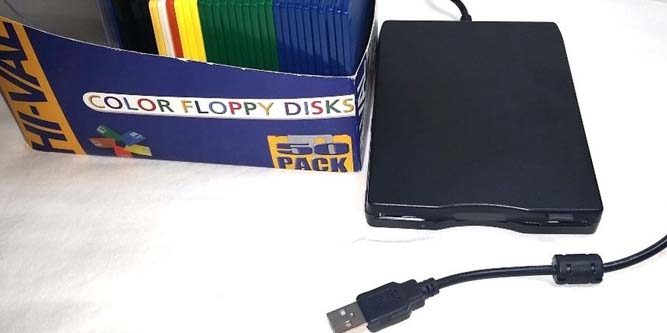
- #Usb floppy format tool install
- #Usb floppy format tool software
- #Usb floppy format tool iso
- #Usb floppy format tool series
It is built from the latest testing branch, incorporates all the latest woof-CE features and is released in PAE and noPAE ISOs, with the option to switch kernels. Tahrpup is built from the woof-CE build system, forked from Barry Kauler's Woof late last year after he announced his retirement from Puppy development. Puppy 6.0.5 is built from Ubuntu 14.04 "Trusty Tahr" packages, has binary compatibility with Ubuntu 14.04 and access to the Ubuntu package repositories. Puppy 5 came with a stripped down version of the Midori browser to be used for reading help files and a choice of web browsers to be installed, including Chromium, Firefox, SeaMonkey Internet Suite, Iron and Opera.
#Usb floppy format tool software
Woof includes some binaries and software derived from Ubuntu, Debian, Slackware, T2 SDE, or Arch repositories. Puppy 5.0.0 - 5.7.0 is based on a project called Woof which is designed to assemble a Puppy Linux distribution from the packages of other Linux distributions.
#Usb floppy format tool iso
Puppy 4.2.0 - 4.3.0 features changes to the user interface and backend, upgraded packages, language and character support, new in-house software and optimizations, while still keeping the ISO image size under 100 MB. To compensate for this, an optional "compatibility collection" of packages was created that restores some of the lost compatibility. Puppy 4.0 are built from scratch using the T2 SDE and no longer features native Slackware 12 compatibility in order to reduce the size and include newer package versions than those found in 3. However, Puppy Linux is not a Slackware-based distribution. This is accomplished by the inclusion of almost all the dependencies needed for the installation of Slackware packages.

Puppy 3.0 features Slackware 12 compatibility. Puppy 2.0 uses the Mozilla-based SeaMonkey as its Internet suite (primarily a web browser and e-mail client). It is also possible if the BIOS does not support booting from USB drive, to boot from the CD and keep user state on a USB key drive this will be saved on shutdown and read from the USB device on bootup. It is possible to run Puppy Linux with Windows 9x/ Windows Me. For newer systems, the USB key drive version might be better (although if USB device booting is not directly supported in the BIOS, the Puppy floppy boot disk can be used to kick-start it).
#Usb floppy format tool series
Puppy 1.0 series will run comfortably on very dated hardware, such as a Pentium computer with at least 32 MB RAM.
#Usb floppy format tool install
It has no unionfs, extreme minimal persistence support, and has no package manager or ability to install applications. Puppy 0.1 is the initial release of Puppy Linux.

The tool Woof can build a Puppy Linux distribution from the binary packages of other Linux distributions. The distribution was originally developed by Barry Kauler and other members of the community, until Kauler retired in 2013. Applications such as AbiWord, Gnumeric and MPlayer are included, along with a choice of lightweight web browsers and a utility for downloading other packages. The entire system can be run from random-access memory (RAM) with current versions generally taking up about 600 MB (64-bit), 300 MB (32-bit), allowing the boot medium to be removed after the operating system has started. Puppy Linux is an operating system and family of light-weight Linux distributions that focus on ease of use and minimal memory footprint. Live CD, Netbooks, older systems and general use Larry Short, Mick Amadio and Puppy community (current)ĩ.5 (FossaPup64) / 21 September 2020 17 months ago ( ) Lightweight Linux distribution Puppy Linux


 0 kommentar(er)
0 kommentar(er)
